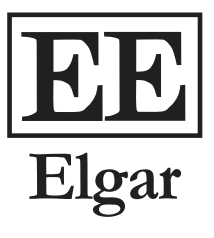
If you are at the stage of your career (or research) where publishing a book is on the horizon, there are a number of factors to consider. Matthew Pitman, Publisher at Edward Elgar Publishing, offers some advice about the options and choices involved.
Select
Academic publishers come in various guises with different strengths and weaknesses. This is not purely in terms of subject coverage but also in terms of the type of books they may specialise in (trade, textbooks, research monographs etc.) and the level of service they offer (quality of production, international marketing etc.). It is important to tailor your choice of publisher to the book you have in mind. In the first instance, it is vital to ensure that they have a strong presence in your discipline and can reach the audience you are writing for.
Firstly and most obviously, do your research. Speaking to colleagues is a great way to get a feel for a publisher and their experience of working with them. As in all businesses, word of mouth and a positive recommendation from a colleague can be invaluable. Wherever possible take the opportunity to speak to publishers at conferences. It is often assumed that they are there simply to sell books, and whilst that is true in part, it is also a great opportunity to meet potential new authors and discuss ideas. It can sometimes be easier, and you can learn far more, from having an informal chat at a conference rather than an initial contact via e-mail
Look through publishers’ online catalogues or search their website for similar books in your field. This will give you a feel for the list of each publisher and a sense of where, or even whether, your book will fit. Are the books or authors you cite regularly and admire in their list, or are there titles you would like to read? If so, that is a strong indication that your book will find a good home.
Whilst it is not often a serious issue, it may be an idea to check whether your book would directly compete with any recent or forthcoming titles by a publisher, although this is more of a consideration for textbooks rather than academic monographs.
Finally, consider the aspects that are important to you. Each author is an individual and places value on different aspects.
Adapt
Having selected a publisher, an approach via a well crafted covering e-mail directed to a specific person briefly explaining your idea will pique an editor’s interest far more than a generic round robin letter. It shows you have done your research which bodes well for the book! If the idea is of interest, most publishers will then ask you to complete a proposal. Although these vary between publishers, in general they ask for very similar information. You can find more detailed insights on preparing a proposal in an earlier post.
During the review process, be prepared to be open to constructive comments. Whilst on occasion very negative reviews can result in an outright rejection, the reality tends to be more nuanced. More often than not there are good and bad parts, particularly with edited books. Rather than insist on changes, a good editor should initiate a two-way conversation to discuss what can be improved whilst remembering that some things are not achievable. Be prepared to accept changes but also to justify your work or counter argue where you believe the reviewers are wrong.
Reject? Persevere!
Don’t take rejection personally – often publishers are able to suggest alternatives. Look at the reasons stated. Academically was the proposal weak, unoriginal or uninspiring, or was it because the publisher felt it was too specialised and therefore the market too small? Different publishers operate with different criteria as to whether a book is commercially viable. A book that is too specialised for one publisher may fit the exact niche that another publisher appeals to. The market may be small, but if you have great links with that market the book can still work.
Finally, remember that all publishers make mistakes. For every book commissioned that goes on to be a success there are always the ones that got away!

Matthew Pitman is a Publisher at Edward Elgar Publishing. He is responsible for the Economics, Innovation and Technology and Human Geography lists.


Leave a Reply